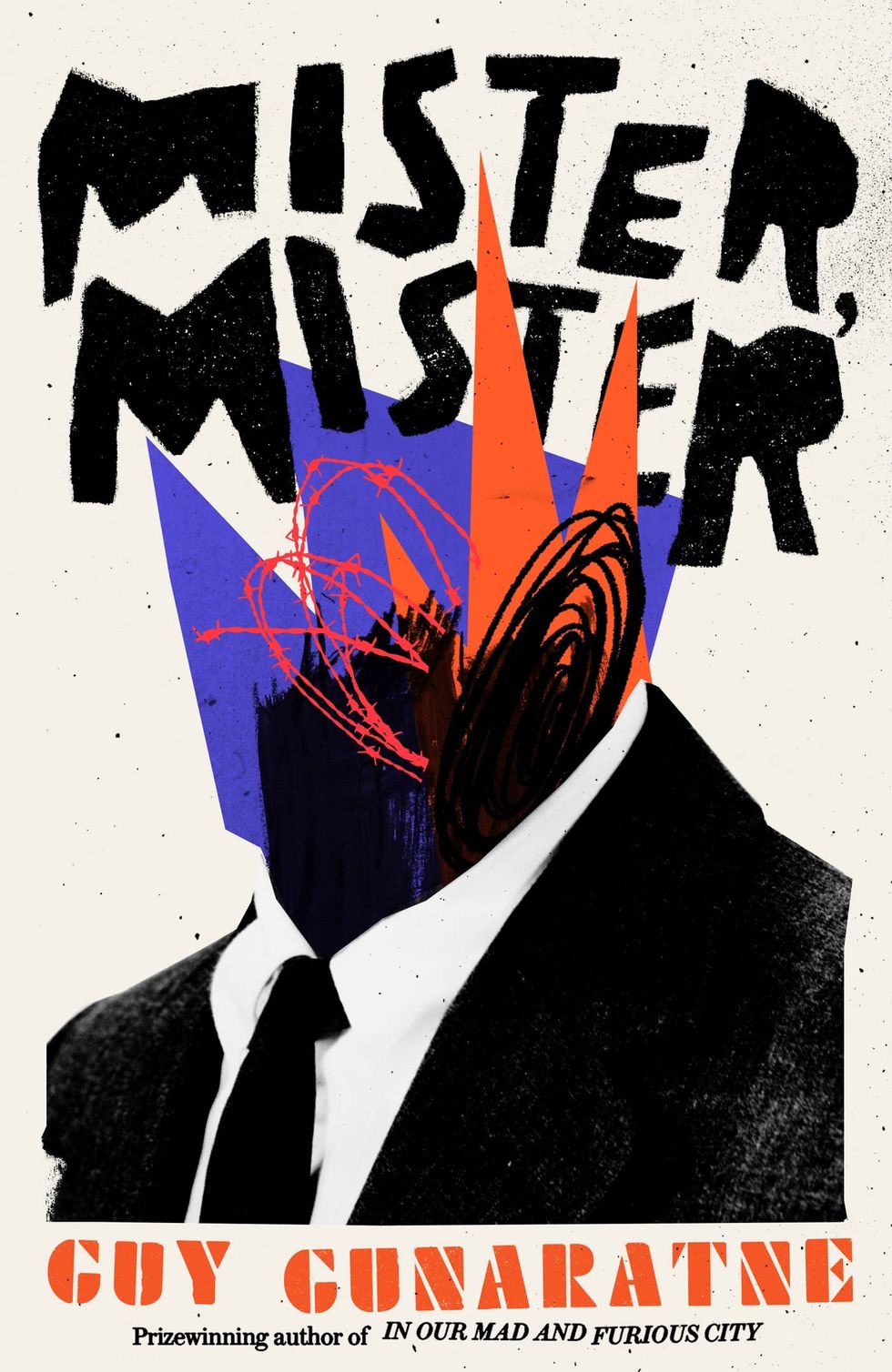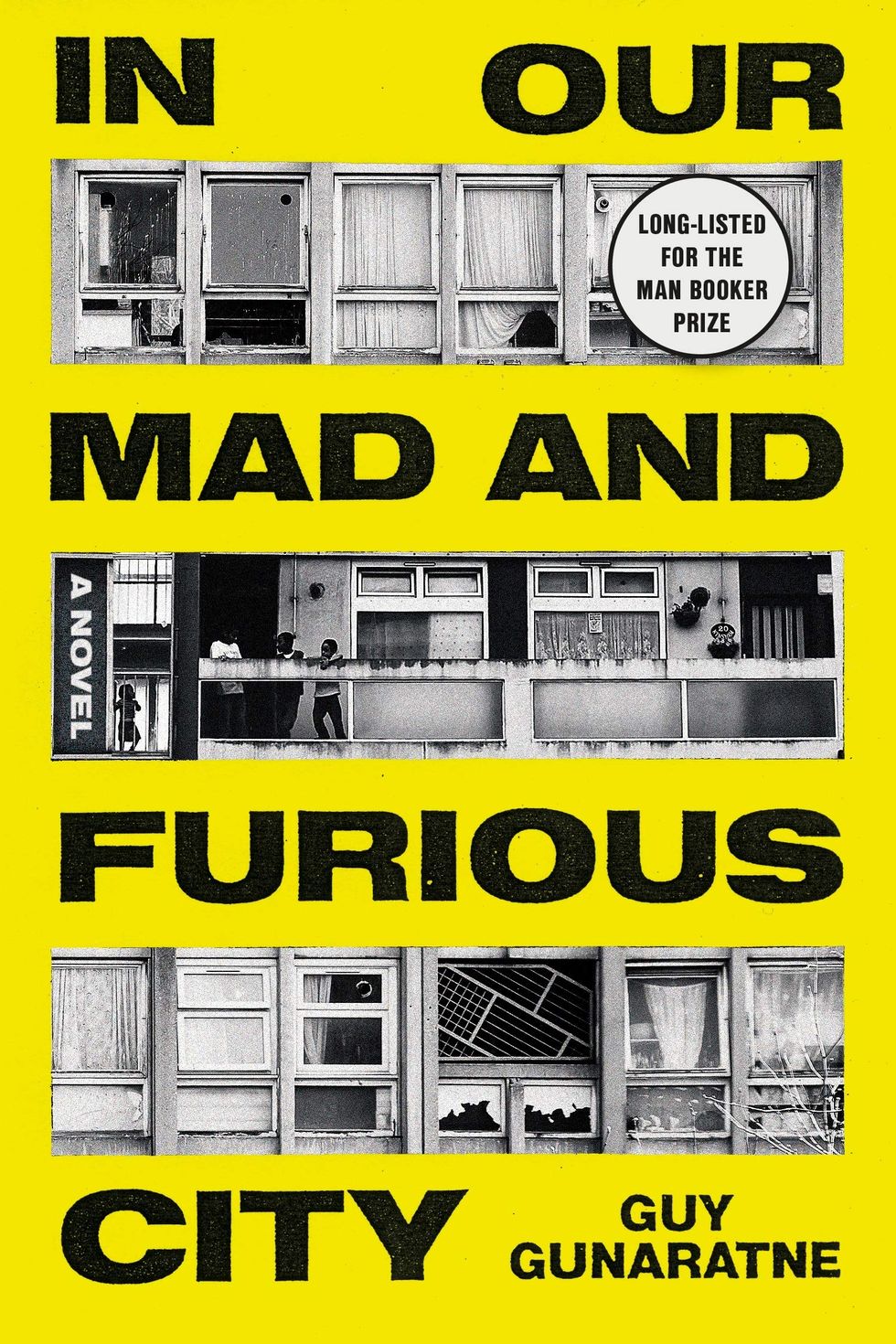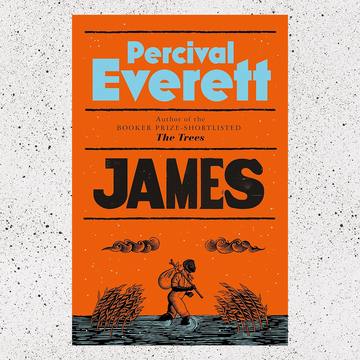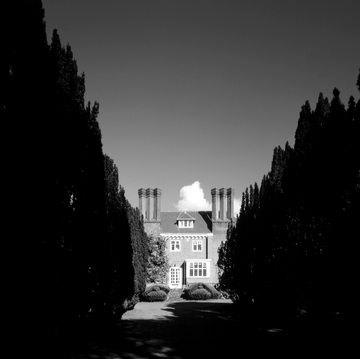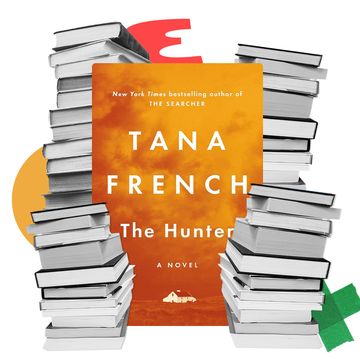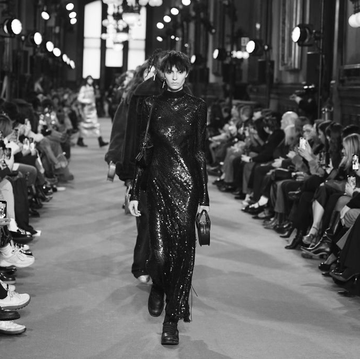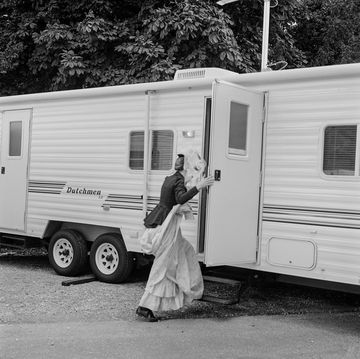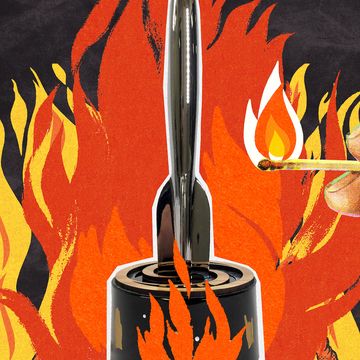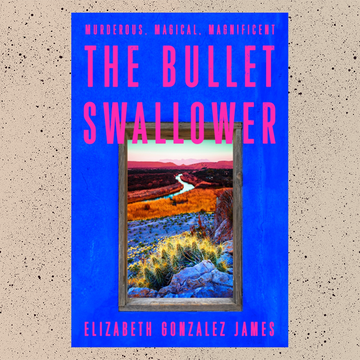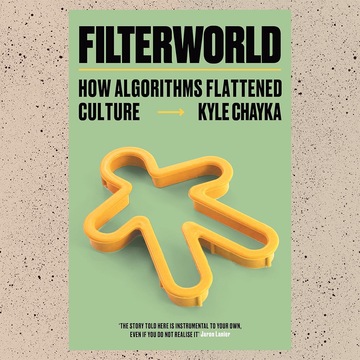Guy Gunaratne was 16 on 9/11. On a London bus, in fact, when a friend called to say that the Twin Towers had fallen. Four years later, on 7/7, Gunaratne’s father phoned, warning against going into central London. The memories are a little hazy. But, when diving into the past, murky recollections are often more evocative than contemporary news reports. “I think it’s preferable to simmer with your feelings and memories, however imperfect they are,” the writer, now 38, says. “They’re coated with a weird, dark nostalgia.”
We are discussing these traumatic events, in a central-London café in February, because they provide a backdrop for Gunaratne’s new novel. Mister, Mister, which is out later this month, recounts the story of Yahya Bas, the son of an absentminded English woman and just-plain-absent Iraqi father, growing up in a communal house in east London. Mister, Mister follows Yahya’s journey from child of the 1990s to Islamic poet-preacher and eventual exile in Syria, snappily told in episodes and propelled by an unsettled energy, largely thanks to the novel’s conversational set-up: present-day Yahya is recounting his life from a UK detention centre to an inscrutable officer (the “Mister” of the book’s title).
Yahya is an incisive narrator. While watching Princess Diana’s funeral, he notes: “You mourn your martyrs in masses, Mister, as if it were easier to revel in a spectacle than to acknowledge any pain of your own.” Mister, Mister is full of these disarming observations about British life, the kind only people with insider knowledge could make. Gunaratne, who uses they/them pronouns, grew up part of a Sri Lankan family in Neasden, northwest London, and now divides their time between the UK and Malmö, Sweden. Their first novel, 2018’s In Our Mad and Furious City, was a multi-perspective retelling of 48 hours following an act of violence closely resembling the 2013 murder of the soldier Lee Rigby. It scooped a handful of awards and was longlisted for the Booker. The recognition the novel had was lovely; the attention Gunaratne received was less welcome. So they followed some time-honoured advice: ignore all the criticism, good and bad, and start the next thing immediately.
The voice of the next book was there for Gunaratne right away: “Spiky, and intriguing in a way that was discomforting”. After you acclimatise to Yahya’s idiosyncratic voice, Mister, Mister is an engrossing romp through recent UK history, underpinned by the constant question: what does it mean to be British? Gunaratne wrote the novel between 2016 and 2022, a period that offered plenty of material for exploring that question, from the Brexit vote to the media trials of Shamima Begum and Jack Letts, British teenagers who travelled to Syria and never returned. “The idea of who belonged and who didn’t became the biggest news story,” Gunaratne says. Against this sensational backdrop, in the author’s head was the mischievous Yahya, making sense of the world from his ramshackle surroundings: “a story of a person becoming”. But becoming what, exactly?
For the answer, Gunaratne looked to the picaresque, the 18th-century genre that often centres on a lovable, occasionally off-putting narrator who endures life’s peaks and troughs before blossoming into a fully formed being. Not so for Yahya, who Gunaratne talks about as if he were a sweet but stressful friend who’s taken up a lot of their time lately. “It seemed he wants to unravel and resist the idea of cohesion,” Gunaratne says. “The only essential part of him is the fact that he isn’t other things — and when that’s in the subjectivity of a person whose Britishness is disputed, that becomes very explosive: the idea that he owns the fact he does not belong.” As Yahya says when he confronts Mister: “If the greatness of your Britain remains so assured, then why is it so difficult to hear someone hate it?”
In conversation, Gunaratne is both careful — continually clarifying previous statements in ever-evolving but always articulate sentences — and playful, name-checking the book’s influences, from queer theorists to musicians (Gunaratne’s writing playlist included some Anohni, a little Perfume Genius). The figure we return to, and the one who looms largest over Mister, Mister, is Charles Dickens. Yahya’s mother is called Estella, the detention centre — both punchline and gut punch — is called Bleaker House. It is impossible to read Yahya’s story and not think of Pip’s rise and fall and rise in Great Expectations. The joke that a famous British novelist, perhaps the most famous British novelist, is everywhere in a novel about denying and disowning British-ness is marvellously effective. But Dickens’s work, Gunaratne insists, is full of disorder and unusual family set-ups: sisters who become mothers and brothers who become fathers. “Dickens, for me, had that whiff of costume drama,” Gunaratne says. “It’s only when I re-read him in my twenties and early thirties that I thought, ‘There’s a lot of interesting shit going on here.’”
After a BA in film and television studies at Brunel University, Gunaratne studied for an MA in current-affairs journalism at City, University of London, and later set up a film-production company with their partner, Heidi Lindvall. (“I’m really aware of how stories are constructed,” they note.) Much of Mister, Mister was written at Trinity College, Cambridge, where they were a visiting fellow for three years. The college — somewhere both King Charles and Nabokov studied — was a retreat for Gunaratne. “I’m forever in debt, because that’s where I could spend weeks researching Abu Ghraib — it felt like a safe place to explore and really sit with something that’s discomforting and difficult.” On the weekend, they would travel back to Malmö, where Lindvall lives with their two children.
Revisiting these epoch-defining events, whether war, torture or terrorism, was gruelling, especially while also handling the demands of being a parent. It became a time of what Gunaratne refers to as “self-inquiry”: “When you’re sitting with the novel, and you’re questioning and pulling at threads to do with identity and performativity, you can’t help but clarify things about yourself.” Gunaratne is reluctant to go into details – though they call it both a liberating and disruptive experience, and perhaps material for a third novel.
It does not — it cannot — escape either of our attentions that, the morning we speak, Shamima Begum lost her appeal against the ruling that stripped the 23-year-old of her British citizenship. It’s a useful, if heavy, reminder that these issues are as alive as ever. “I don’t think that these are neat stories that have confined conclusions — even with the appeal being overruled, that’s not the end of the story. That’s not the end of the question about what Britishness or what citizenship means. I just hope the conversation continues.” With Mister, Mister, and its restless narrator, Gunaratne presents a provocative talking point. ○
“Mister, Mister” is published on 25 May (Tinder Press)
Henry Wong is a senior culture writer at Esquire, working across digital and print. He covers film, television, books, and art for the magazine, and also writes profiles.

